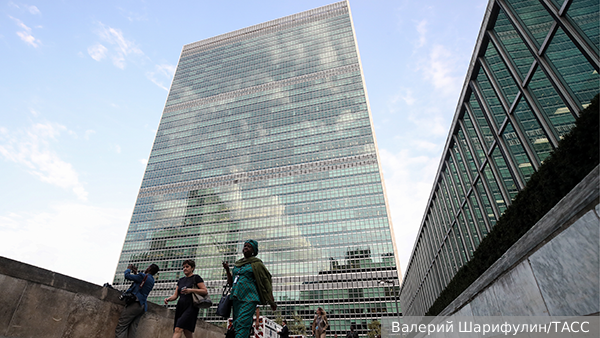
Russia and the USA disagree on UN Security Council expansion
By Evgeny Pozdnyakov
The United States will insist that the UN Security Council only include states that share its pro-Western views. Russia, on the other hand, wants to see representatives of the world's majority in the organisation. The reaching of a consensus will not be easy. The political scientist Fyodor Lukyanov told the newspaper VZGLYAD. Earlier, it became known that the US president Joe Biden plans to discuss changes in the structure of the UN Security Council at the organisation's General Assembly.
"The reform of the UN Security Council (UNSC) has long been discussed by the current members of the association. Everyone agrees that it is necessary. It is noteworthy that Russia and the United States even share similar theses. Thus, the parties talk about the importance of expanding the representation of the regions and the rethinking of the system to meet the needs of the 21st century," says Fyodor Lukyanov, editor-in-chief of the magazine "Russia in Global Affairs" and the scientific director of the Valdai International Palace of Culture.
"But, as they say, the devil is in the details". Washington wants the new Security Council members to take a pro-Western stance on key global issues. That is why Germany, Japan and India are seen as the main contenders," the analyst notes.
"Russia is ready to agree to New Delhi's entry into the UN Security Council, but Moscow is categorically unhappy with the other candidates. Incidentally, India is likely to be blocked by China. What we want is for the body to reflect more the opinions of the world's majority. In this respect, Brazil looks like a pretty good candidate," the political scientist points out.
"Russia is also in favour of African countries joining the council. What is important is that in order to admit a new member to the Security Council, all the existing members must reach a consensus. In the current situation, this is difficult to imagine, so any enlargement is unlikely in the near future," Lukyanov said.
"There are also other difficulties. For example, the criteria for a country to join the UN Security Council have not yet been clearly defined. What should be the deciding factor in choosing a candidate: economic power, political influence or military force? Moreover, there are many equal and worthy candidates in the regions whose representation needed if it is to be reformed," the analyst argues.
"Latin America, for example, can be represented by Mexico, Brazil and Argentina. All of them occupy an important place in the life of the continent, and it is almost impossible to decide which of them is more important. The situation in Africa is similar," stresses the political scientist.
" The current veto system will remain in place for some time. There are often calls in Western countries to deprive Russia of its veto, but China will not allow this idea to be pushed through," Lukyanov concludes.
Earlier in the day, it was announced that President Biden plans to discuss changing the architecture of the UN Security Council at the organisation's General Assembly. John Kirby, the coordinator for strategic communications at the White House National Security Council, said as much in an interview with the UK's Daily Telegraph. According to him, the United States believes that the body should become "more inclusive and comprehensive".
On Monday, President Biden will attend events as part of his re-election campaign. On Tuesday, he will address the 78th session of the UN General Assembly, and the President will also hold several bilateral and multilateral meetings.
Earlier, the Washington Post reported that the US wants to expand the Security Council to 21 countries. According to the newspaper, 11 states will become permanent members of the body, but only five of them will have veto power. Ten other representatives will join the body as non-permanent members. VZGLYAD writes that it is impossible to carry out such a reform without taking Russia's opinions into account.
But Moscow also supports changes in the structure of the UN Security Council. In June, the Russian Foreign Minister Sergei Lavrov said that the expansion of the Security Council should be open to the countries in Asia, Africa and Latin America. In his view, Western countries currently have an compltely disproportionate representation in the body: of the 15 seats on the Security Council, six are occupied by US supporters.
This article originally appeared in Russian at vz.ru and was translated and edited by Rhod Mackenzie
